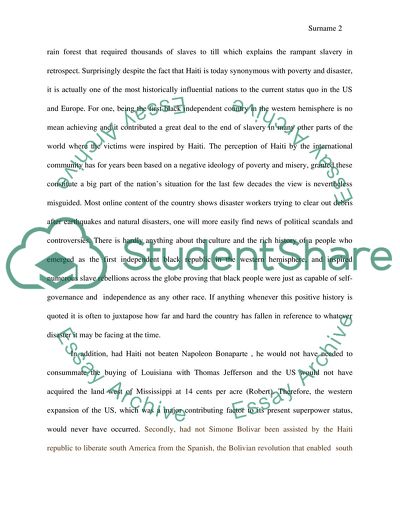Cite this document
(“Haiti: local realities, global influence Research Paper”, n.d.)
Haiti: local realities, global influence Research Paper. Retrieved from https://studentshare.org/miscellaneous/1649209-haiti-local-realities-global-influence
Haiti: local realities, global influence Research Paper. Retrieved from https://studentshare.org/miscellaneous/1649209-haiti-local-realities-global-influence
(Haiti: Local Realities, Global Influence Research Paper)
Haiti: Local Realities, Global Influence Research Paper. https://studentshare.org/miscellaneous/1649209-haiti-local-realities-global-influence.
Haiti: Local Realities, Global Influence Research Paper. https://studentshare.org/miscellaneous/1649209-haiti-local-realities-global-influence.
“Haiti: Local Realities, Global Influence Research Paper”, n.d. https://studentshare.org/miscellaneous/1649209-haiti-local-realities-global-influence.


